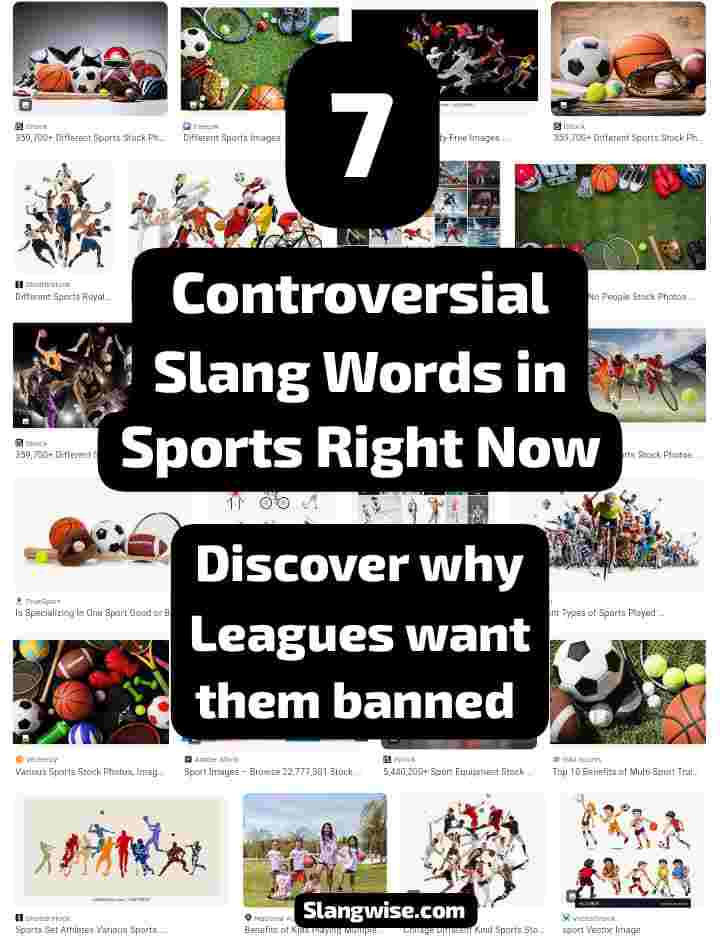Here’s what’s shaking up sports right now: seven slang words in sports that have crossed the line from playful locker-room talk to full-blown controversy.
I’m talking about terms that have spread through teams and social media so fast that leagues are rushing to ban them.
These words touch on stereotypes, cross ethical lines, or simply spark public outrage, and now governing bodies are weighing free speech against the need to keep the game fair and safe.
I’ll dive into each of the seven most controversial Slang terms, explain why they’ve caused such a stir, how they caught fire in locker rooms and online, and what the ban efforts tell us about how sports language is changing.
Strap in: this guide cuts right to the chase.
Table of Contents
In a Nutshell
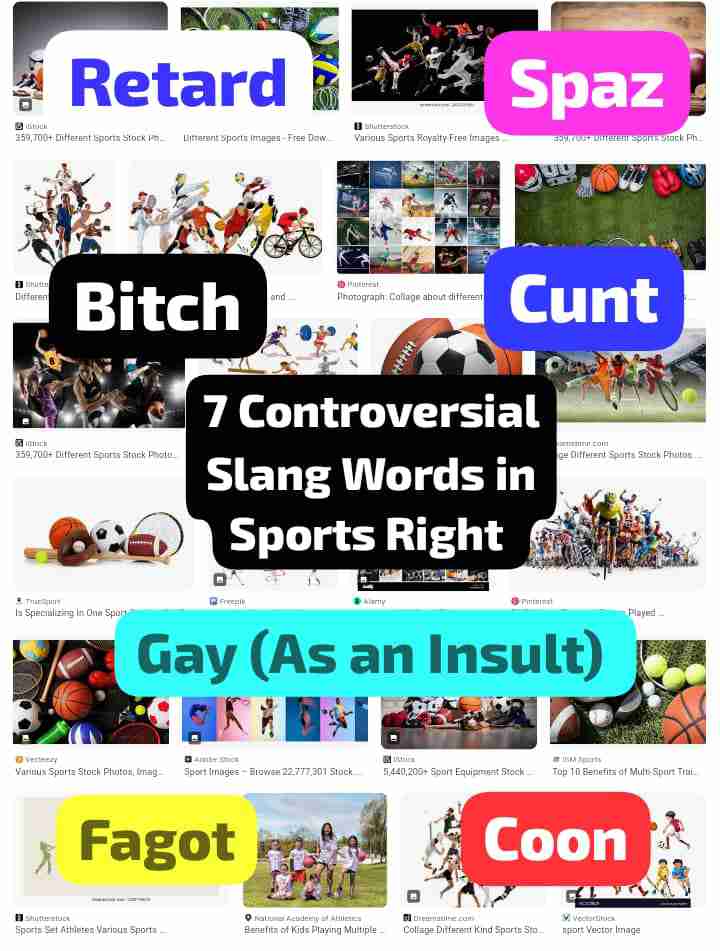
- Offensive Impact: Each term (“retard,” “spaz,” “bitch,” “gay,” “faggot,” “cunt,” and “coon”) carries historical baggage that hurts players and fans alike.
- Legal and Ethical Risks: Leagues face lawsuits and public backlash when such language surfaces.
- Policy Changes: Major organizations are updating codes of conduct to curb harmful slang.
- Culture Shift: Teams and broadcasters push for respectful speech to foster true inclusivity.
SlangWise Thought: “Language shapes the locker room. Choose words that lift teammates, not cut them down.”
Most Controversial Slang Words In Sport and Why Leagues Want Them Banned
1. Retard
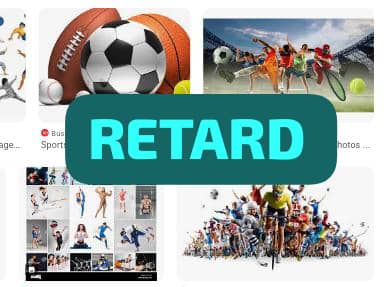
What Retard Means
Once a clinical term, “retard” morphed into an insult aimed at anyone perceived as slow or weak.
Why It’s Controversial
Disability advocates have long condemned its casual use. In sports, hearing it directed at athletes or in chants can trigger protests and sanctions.
League Response
- The NFL’s personal conduct policy now classifies ableist slurs under hate speech, punishable by fines or game suspensions (NFL Policy).
- Several college conferences follow suit, with the NCAA forbidding any demeaning remarks based on disability status (NCAA Inclusion Statement).
Impact
Banning “retard” on and off the field has become a rallying point for more respectful locker-room talk. Teams now offer workshops led by disability-rights experts.
2. Spaz

What Spaz Means
Spaz was derived from “spastic,” this term mocks involuntary muscle contractions, often used to taunt someone for clumsiness.
Why It’s Controversial
It offends people with cerebral palsy and other motor disorders. Even unaware rivals feel shamed when the word flies during play.
League Response
- FIFA’s code of ethics includes protections for players with disabilities, and some national federations have noted disciplinary action against verbal abuse.
- The Professional Hockey Players’ Association issued a memo urging players to avoid terms that stigmatize medical conditions.
Impact
Coaches now intervene immediately when “spaz” surfaces, microphones on referees help catch slurs in real time.
3. Bitch
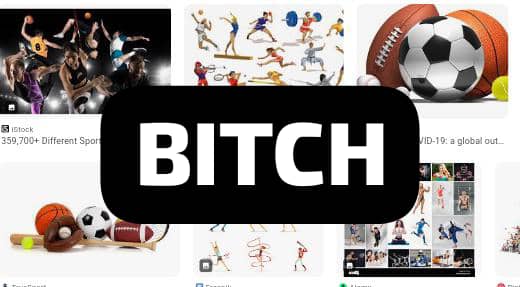
What Does Bitch Means
Originally referring to a female dog, “bitch” evolved into a blanket insult for anyone deemed weak, whining, or frustrating.
Why It’s Controversial
Bitch is a sexist word with a history of targeting women. Even when directed at men, it reinforces misogynistic norms.
League Response
- The Women’s National Basketball Association (WNBA) has fined players for using “bitch” aggressively during games, citing its impact on female athletes’ safety and well-being.
- The English Premier League’s Respect campaign explicitly calls out gendered insults as unacceptable (Source: Premier League Respect).
Impact on Culture
Broadcasters now mutebox such comments live, and teams hold gender-sensitivity training for players and staff alike.
4. Gay (as an Insult)

What Gay Means
Colloquially used to label something as “lame” or “uncool,” detached from its original meaning related to sexual orientation.
Why It’s Controversial
It demeans LGBTQ+ individuals by turning identity into a joke. Player use sparks outrage from fans and advocates.
League Response
- Major League Baseball’s diversity guidelines include punitive measures for homophobic language, highlighting zero tolerance for “gay” used pejoratively.
- FIFA’s anti-discrimination code also covers sexual orientation slurs, with match bans for offenders.
Impact on Culture
All-star weekend panels and Pride Nights in stadiums now include segments on respectful language, reminding fans that “gay” should never be shorthand for “bad.”
5. Faggot
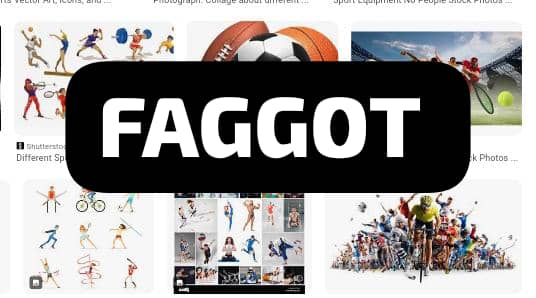
What It Means
Historically, Faggot is used as a crude insult toward gay men, “faggot” remains one of the most violent anti-LGBTQ+ slurs in English.
Why It’s Controversial
This term inflicts deep emotional harm, carries a legacy of hate, and often incites harassment or violence against LGBTQ+ athletes and fans. Its use on broadcasts or in locker rooms provokes public outrage and legal scrutiny.
League Response
- The National Football League (NFL) classifies homophobic slurs under its hate-speech policy. Offenders face multimillion-dollar fines and indefinite suspensions (NFL Personal Conduct Policy).
- FIFA’s Disciplinary Code enforces match bans and hefty fines for “offensive, insulting or abusive language” based on sexual orientation (FIFA Disciplinary Code).
- The You Can Play Project, an advocacy group for LGBTQ+ inclusion in sports, partners with leagues to train players and staff on respectful language and bystander intervention (You Can Play).
Impact on Culture
Zero-tolerance policies have reduced public incidents, but private usage still surfaces. Teams now conduct mandatory workshops on LGBTQ+ inclusion and encourage players to become ambassadors for respect.
6. Cunt
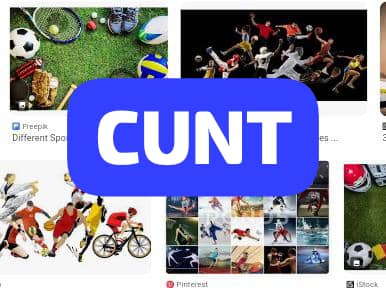
What Cunt Means
A vulgar term for female genitalia that has become a general insult. In sports, it’s often hurled at opposing players or referees to demean or intimidate.
Why It’s Controversial
This word is deeply misogynistic. It demeans women by equating them with weakness or disgust, and women athletes face double standards when it appears in locker-room banter.
League Response
- The WNBA’s Official Playing Rules include fines for sexist or demeaning language toward officials or players of any gender. Its code of conduct cites “derogatory remarks” as unsportsmanlike (WNBA Official Rules).
- England’s Football Association classifies “cunt” under vicious, obscene or threatening language. A player using it against opposing teams can face multi-match suspensions (FA Disciplinary Code).
Impact on Culture
Broadcasters delay live feeds by a few seconds to bleep this term. Sports academies have added gender-respect sessions to mandatory training, ensuring future generations understand its harm.
7. Coon
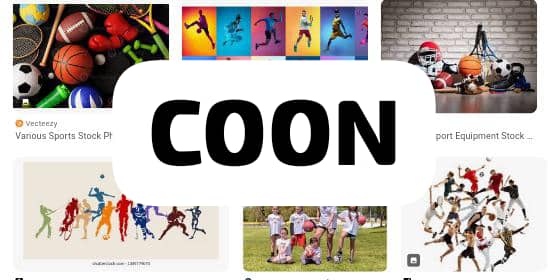
What It Means
Coon is a deeply derogatory racial slur aimed at Black people, “coon” dehumanizes and evokes centuries of oppression.
Why It’s Controversial
Its utterance in any context reignites painful histories of segregation and violence. Fans chanting it at events have led to stadium ejections and criminal investigations.
League Response
- The NBA’s Constitution bars “discrimination, harassment or hate speech” including racial slurs. Recent high-profile ejections demonstrate strict enforcement (NBA Constitution).
- Major League Baseball (MLB) added specific language banning racial epithets in its Joint Action Plan on inclusion, developed with the Anti-Defamation League (MLB Diversity and Inclusion).
- The International Olympic Committee (IOC) requires host broadcasters to remove any racial hatred from coverage. Violations can lead to sanctions against host nations or media partners (IOC Rule 50).
Impact on Culture
Fan education campaigns display anti-racism messages on stadium screens. Players serve as ambassadors for unity, sharing stories of how sports can transcend racial divides.
Why Leagues Are Racing to Ban Harmful Slang
- Legal Liability
When derogatory language appears in stadiums or broadcasts, leagues risk lawsuits for hostile-environment claims. Avoiding slurs reduces legal fees and expensive settlements. - Brand Protection
Sponsors refuse to associate with leagues tainted by hate speech. Coca-Cola, Nike, and other major backers demand stringent conduct codes or risk contract terminations. - Fan Experience
Today’s fans expect inclusive, family-friendly environments. Surveys by Nielsen show 78% of sports viewers support strict policies against hate speech to protect marginalized groups. - Global Audiences
As leagues expand into new markets, local cultural norms and anti-discrimination laws require compliance. A slur in one country can provoke diplomatic incidents abroad.
Finally Thought
Language shapes the spirit of competition. By recognizing and banning seven of the most harmful slang words: “retard,” “spaz,” “bitch,” “gay,” “faggot,” “cunt,” and “coon” etc. sports leagues protect athletes, honor fans, and preserve the integrity of the game.
Continual education, vigilant monitoring, and clear conduct codes ensure that every shout from the stands or field uplifts, rather than harms, the diverse community that makes sports a universal passion.

